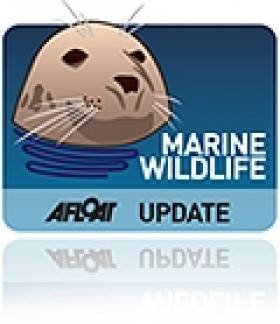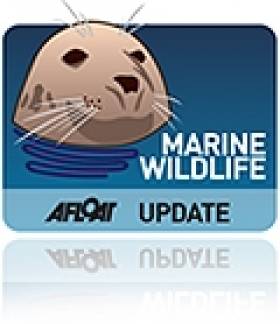Displaying items by tag: Rutland Island
Removal of Whales to Cost Council €10,000
The pod, which had been observed in waters between Arranmore Island and Burtonport during the week before they stranded themselves on a beach on Rutland, were also believed to be the same pod monitored off the South Uist, off the Hebrides. Shortly before that it was feared that the whales may have also attempted to beach themselves.
Dr Simon Berrow of the Irish Whale and Dolphin Group (IWDG) said he could not rule out sonar interference for confusing the whales and leading to their beach deaths. For information on the IWDG logon to www.iwdg.ie
Sonar Possible Culprit in Whale Death Tragedy
Sonar activity by Royal Navy submarines may have caused the deaths of up to 35 pilot whales off the coast of Co Donegal at the weekend, an expert has claimed.
Dr Simon Berrow of the Irish Whale and Dolphin Group (IWDG) said that naval activity in the area is one possible cause of the tragedy.
"Naval exercises use a low frequency active sonar which is known to affect whales very badly," he told the Belfast Telegraph. "Basically it affects their sonar and causes a gas embolism, like the ‘bends’."
The Telegraph reports that tests are still being carried out to determine if the whales that beached on Rutland Island, near the fishing village of Burtonport, are the same as a group monitored in Scotland's outer Hebrides the previous weekend.
The pilot whales had reportedly been swimming off Co Donegal for the past week before they were found dead.
The Belfast Telegraph has more on the story (with photos) HERE.
Post Mortem on Mass Pilot Whale Strandings Cancelled Due to Bad Weather
Plans to carry out a post-mortem examinations on thirty-five Pilot whales found dead on a beach in Co Donegal yesterday have been cancelled due to bad weather according to Dr. Simon Berrow of the Irish Whale and Dolphin Group (IWDG).
Up to thirty-five Pilot whales were found dead on a beach in Co Donegal. The whales were discovered on Rutland Island near Burton port yesterday afternoon on a beach and have been confirmed as pilot whales, mostly mothers and calves.
A team from the Galway-Mayo Institute of Technology led by Dr Ian O'Connor and the Irish Whale and Dolphin Group are planning to travel to record length, gender and obtain photographs to see if they can be matched to the recently observed Scottish animals. Skin samples and teeth will also be collected for genetics and life-history studies.
According to locals the whales had been seen feeding in the area around Aranmore Island since Tuesday.
A group of around 30 pilot whales were monitored in South Uist in the outer Hebrides, Scotland last weekend for fear of their live-stranding. The IWDG believe it may be the same group.
Pilot whales have a tendency to strand themselves in large numbers and a similar incident occurred in Co Mayo a few years ago. In June Cape Verde islanders abandoned hope for the survival of 92 pilot whales that were found washed up in a mass beaching. In September in New Zealand at least 25 pilot whales died after beaching themselves in a north Wellington bay as rescuers battled to save almost 50 more stranded.
RTE News has pictures HERE

























































